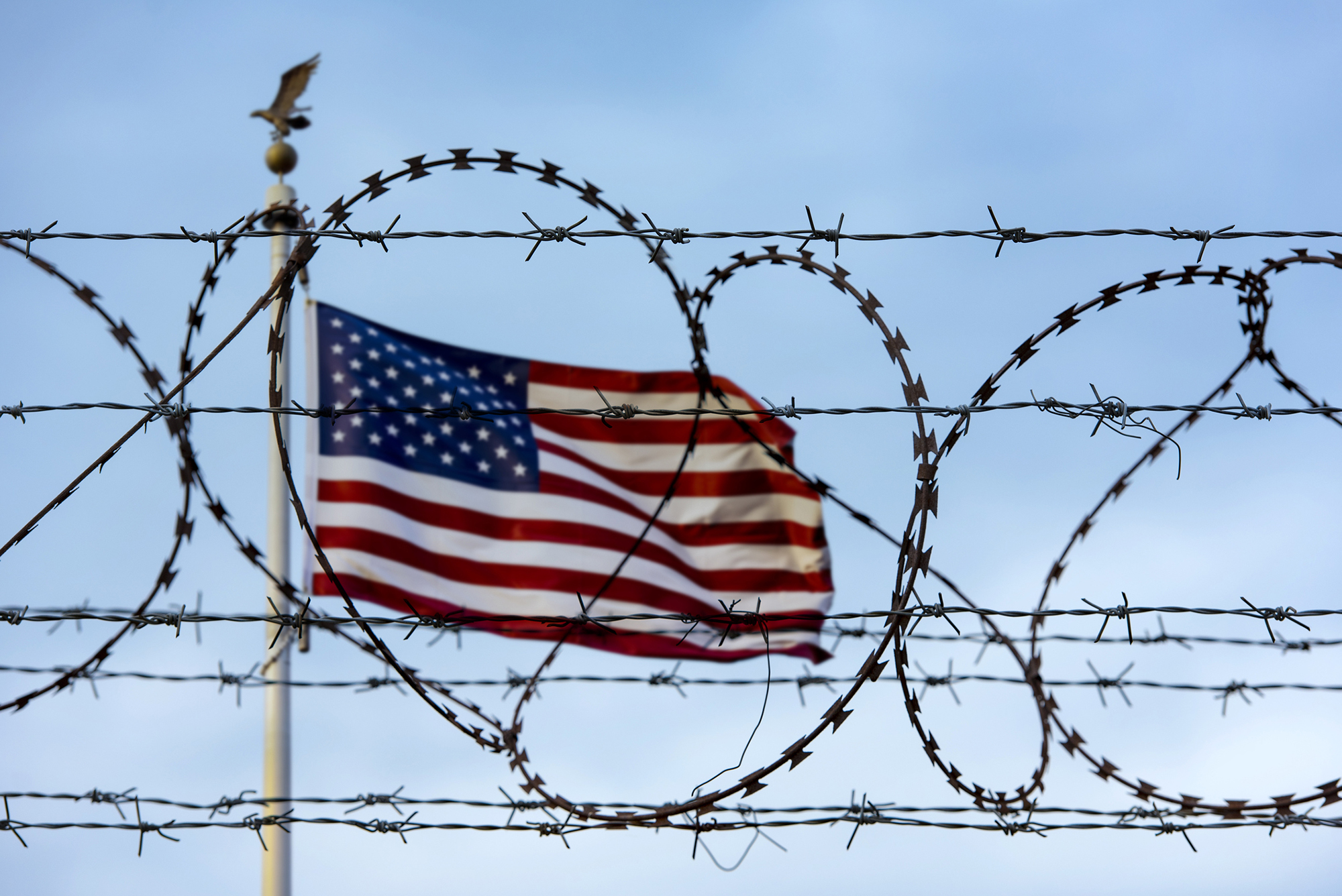
WASHINGTON (BP) — Two Southern Baptist leaders urged Congress Nov. 29 to act soon to provide a long-term remedy for undocumented immigrants brought to the United States as children.
 Walter Strickland, first vice president of the Southern Baptist Convention, and Travis Wussow, a Southern Baptist public policy specialist, in a telephone news conference called for a legislative solution as the deadline for action nears. The Trump administration announced Sept. 5 it would end a program that has given about 800,000 people relief from deportation but also instituted a six-month delay for Congress to act.
Walter Strickland, first vice president of the Southern Baptist Convention, and Travis Wussow, a Southern Baptist public policy specialist, in a telephone news conference called for a legislative solution as the deadline for action nears. The Trump administration announced Sept. 5 it would end a program that has given about 800,000 people relief from deportation but also instituted a six-month delay for Congress to act.
President Obama established the program — known as Deferred Action for Childhood Arrivals (DACA) — by executive order in 2012 to protect undocumented immigrants who arrived in this country before their 16th birthday. The order to protect Dreamers — a title that stems from the name of a bill introduced to protect this category of immigrants — came after Congress failed for more than a decade to pass proposals to address the issue.
Dreamers “find themselves in a place of uncertainty and insecurity as a result of action that is not their own,” Strickland told reporters. “Followers of Jesus are called to do justly and love mercy. This means that standing on the side of Dreamers is a job of Christians who are looking to do justice.”
Members of this group of undocumented immigrants “call America their home, and they’re people who by good faith willingly submitted themselves to criminal screening to remain those who are contributing to our society,” said Strickland, associate vice president for kingdom diversity and a theology professor at Southeastern Baptist Theological Seminary in Wake Forest, N.C.
Wussow, general counsel and vice president for public policy of the Ethics & Religious Liberty Commission, said the issue touches on all four categories of the Southern Baptist entity’s agenda: (1) Human dignity; (2) family and marriage; (3) religious liberty; and (4) justice.
It is about human dignity, Wussow told reporters, because every person “is an image bearer of God,” and it is a justice issue for the ERLC “because the Bible is clear we don’t hold children responsible for the actions of their parents.”
This is a family issue, Wussow said, since all of the Dreamers came to this country because of their families and many now have their own families. The ERLC believes “American policy should promote the flourishing of families,” he said.
It also raises religious freedom concerns because “many churches are uncertain about how they can lawfully care for their immigrant neighbors,” Wussow told reporters.
Wussow called on Congress and the White House “to finally serve our Dreamer neighbors well and not let this opportunity slip away.”
Members of Congress have introduced at least six bills to address the situation, according to the ERLC. Nearly half of the time provided by the administration for the Senate and House of Representatives to act has already passed, however.
Congress needs to act before the end of the year rather than wait until the March deadline, according to the National Immigration Forum — which sponsored the telephone news conference. It could take at least seven months to implement long-term relief for Dreamers once Congress approves a measure, the forum and the Niskanen Center reported. Beginning March 5, about 1,000 people a day will lose their protection from deportation, according to the report.
Legislators could defer deportation proceedings as part of the legislation they approve, according to the ERLC.
In early October, a coalition of evangelical leaders organized by ERLC President Russell Moore called for a congressional solution. Among the 51 original signers of a statement were four former SBC presidents.
Signers of the statement said they endorse “the underlying policy aim” of DACA “because we believe this is a special category of immigrants who are not legally culpable, who in most cases have no home other than the United States, and who are a blessing to their communities and to their churches.”
Those who have taken part in DACA have pursued education, worked and paid taxes, served in the military and refused to become involved in crime, according to the statement. “A solution for Dreamers rightly excludes those convicted of felonies or multiple misdemeanors,” the signers said.
Jose Ocampo, 22, a DACA recipient who attends a Southern Baptist church in Charlotte, N.C., said on the conference call he is “extremely grateful” for the program. “It has changed my life,” said Ocampo, who was brought to this country when he was two months old. “I’m extremely grateful for what this country has given me.
“Because of DACA, I’ve had the opportunity to get the feel of what it is to be a normal college student like any of my other friends,” said Ocampo, a student at Wingate University.
He attends a campus of Hickory Grove Baptist Church, which is aware of his status, Ocampo said. “I love my church,” he told reporters. “I love my community. They’ve been extremely supportive. And they’ve helped me out tremendously.”
In 2001, members of Congress proposed for the first time the Development, Relief and Education for Alien Minors (DREAM) Act — hence the name Dreamers for those in this category of undocumented immigrants. The measure gained reintroduction several times thereafter without passing before Obama acted.
Messengers to the 2011 SBC meeting approved a resolution on immigration reform that called for the advancement of the Gospel of Jesus while pursuing justice and compassion. The measure urged the government to make a priority of border security and hold businesses accountable in their hiring. It also requested public officials establish after securing the borders “a just and compassionate path to legal status, with appropriate restitutionary measures, for those undocumented immigrants already living in our country.” It specified the resolution was not to be interpreted as supporting amnesty.















